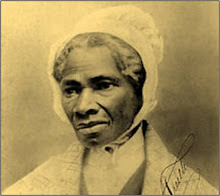
Introducing The "Slave" Narratives began on July 19, 2008, and is a weekly open thread where you can come and discuss, holler, scream, and rejoice about your experiences on "your side of the plantation" (translation: working while Black; Black in the workplace; etc.).
FYI: When I started Sojourner's Place, I envisioned it to be a place where professional African-American women would converge to discuss (scream and holler) about their experiences in the workplace. SjP's has certainly evolved since then and I'm really cool with that. But, just felt the need to "return to my roots" so to speak.
So, each Saturday feel free to drop by and participate in the "Slave" Narratives Open Thread. Now this might be a lame idea - and if it doesn't seem to be of interest then I'll deep-six this "not so brilliant" idea. But, think about participating. Feel free to post anything related to your workplace, profession, work experiences, etc. You can vent or share an idea. Well see how it goes. And be sure to read the narratives of others leaving their comments.
Speak the Truth!
 Obliged to you for hearing me, and now old SjP ain't got nothing more to say.
Obliged to you for hearing me, and now old SjP ain't got nothing more to say.
open thread: "slave" narratives
http://sojournersplace.blogspot.com/2008/07/open-thread-slave-narratives.html
Sphere: Related Content
open thread: "slave" narratives
http://sojournersplace.blogspot.com/2008/07/open-thread-slave-narratives.html
























